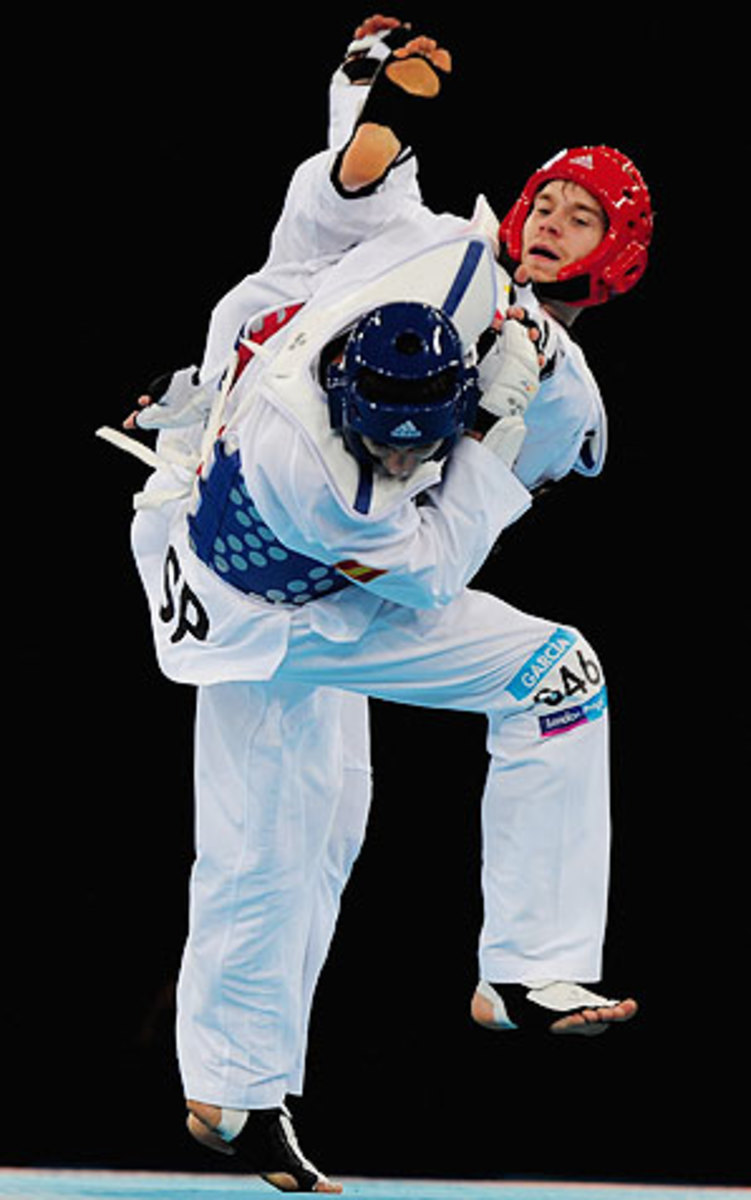
Decision to pass on Cook is just the latest backroom blunder by U.K.
I'll confess: My part in this mutual puzzlement comes in the wake of being the kind of person who, more than once during the Diamond Jubilee, looked at the tableau of the Royal Family, all smug and dry in the rain, and wondered, "And what exactly did you do to deserve all this?"
But really, this country could do with a little more meritocracy and a little less deference to the clan, especially those who meet behind closed doors and emerge to make arbitrary pronouncements.
Let me explain: Britain has a taekwondo athlete so accomplished that he's the current world No. 1 and reigning European champion. Yet somehow this fighter, Beijing Olympic semifinalist Aaron Cook, hasn't been chosen as the country's lone entrant in the 80-kilogram weight class. Federation selectors instead picked Lutalo Muhammad, an Olympic rookie who's ranked as high as 56th and will have to come down a weight class to fight at 80 kg.
GB Taekwondo avers that its choice has nothing to do with Cook's decision to leave the national team program to train on his own with a French coach. It's instead the result of an arcane rules change for 2012, which will award more points for kicks to the head, a skill at which Muhammad seems to be more adept -- a deficit of 55 ranking spots and previous Olympic experience be damned.
Twice the British Olympic Association asked the panjandrums of taekwondo to revisit their decision. Each time the UK foot-and-fist folks confirmed it, whereupon the BOA, after some requisite grumbling about "transparency," declined to exercise its power to overrule.
Lest a regrettable precedent be set, you see. Just wouldn't be proper.
The 21-year-old Cook has been in training more or less since age five, when Power Rangers cartoons inspired him to take up martial arts. Unless he follows through with and succeeds in a contemplated legal challenge, Cook will be left to stew for the next four years, assuming his spirit hasn't been so crushed by the imbroglio that he gives up the sport entirely.
As for Muhammad, he may have landed a spot on the team, but he's fielding hate mail and seeing a shrink to cope with all the stress -- not the kinds of conditions under which anyone wants to become an Olympian, much less circumstances conducive to a medal performance.
And make no mistake, if the Cook decision stands, it will take nothing less than a Muhammad medal to assuage skeptics, who note that GB Taekwondo took almost $7.8 million in public funds to build a team for London.
The World Taekwondo Federation (WTF) has reacted to all this with an expression of its acronym, launching a probe of its own that may lead it to act in a way the BOA didn't have the nerve to. But for now, hundreds of thousands of already-printed Olympic programs featuring a profile of Aaron Cook threaten to become souvenirs of what happens when groupthink meets overthink, and people stray from a simple choice of the most deserving healthy candidate based on the record.
Meritocracy is all the more called for when the spoils are a berth on the host country's Olympic team. Next to a medal, no honor surpasses it. In advance of the 2000 Olympics in Sydney, all sorts of Australian athletes lawyered up to contest their non-selection, but at least they could appeal up a logical line, all the way to the independent Court of Arbitration for Sport. Britain has no such blanket procedure.
In the U.S. we enshrine the virtues of our meritocratic sporting pageants, from a baseball season of 162 games, to the unforgiving crucibles of one-and-done NCAA tournaments. The brutal math of the U.S. Swimming Trials -- finish one or two, or stay home -- has had much to do with that sport's contribution to the American medal haul, accustoming competitors to Olympic-level pressure in advance of the Games.
If it's any consolation to Cook, this sort of backroom chinstroking has been going on in British sport for decades, most famously in 1988 when a panel, deliberating on behalf of the country's track federation, decided by one vote not to give a discretionary spot in the Seoul Games to the only man ever to have won back-to-back Olympic 1,500-meter titles. That runner, Sebastian Coe, learned of the decision, which meant he wouldn't have a chance to add a third, on his car radio. He wound up spending those Olympics on a boat off the coast of Sicily.
Seoul may not have been Coe's Olympics. But London's Games are, and as he decides whether or not to pulp all those programs, maybe Coe can recommend a Games-time holiday destination for Aaron Cook. Getting the English out of town, after all, is supposed to help relieve anticipated congestion on the Jubilee Line.




